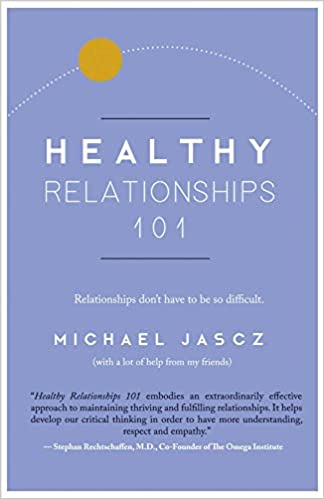
Teenagers have a lot to do. Teenagers place more emphasis on dating and socializing, than on basic self-care such as nutrition and exercise. These are essential to their physical and mental health. Here are some healthy living tips that teens can use to help reach these goals. Be sure to give your teen plenty of rest and quality time with their friends. Healthy living tips are important for teenagers to help them feel good and avoid developing unhealthy habits.
Limit screen time to less than two hours a day
It is often recommended that parents limit the time their children spend on screens. This decision should be made taking into account many factors. In addition to age and activity level, it is also important to consider whether the time spent using screens is limiting their children's social and academic development. In 2016, the American Academy of Pediatrics updated its guidelines regarding screen time. They suggest that children and teenagers limit the amount of screen time they spend on TV or other screens.
Keep your social media active
Monitoring your teen’s social networks is a key part of your daily parenting plan. Monitoring your teen on social media is a must. Make sure that you are the first friend they add. This will allow you to build a rapport with your teen as well as learn about any potential dangers that they might be experiencing. Teenagers shouldn't post personal information on social networks, especially if it concerns their personal data.

Get enough rest
Many teenagers feel they don't get enough rest. Teens need more rest because their bodies are changing rapidly. Here are some tips to help your teenager sleep eight hours a night. To reduce the possibility of dramatic shifts in their schedules, teenagers should aim to wake up around the same hour each morning. If you have trouble getting your teenager to get up on time each morning, you might consider giving them some extra time over the weekend.
Consume fresh foods
Teenagers should consume at least three meals per day. Avoid diet foods that require cutting out entire food groups. Fad diets are often devoid of proper nutrition. This could lead to your teen lacking in vitamins and minerals. Be a role model for your teen to live a healthy lifestyle. You should eat plenty of fruits and vegetables, and avoid sugary drinks. Avoid snacking at night and make fresh fruits and vegetables your mainstay for after-school snacks.
Keep hydrated
Children need to be hydrated. A healthy lifestyle that includes drinking plenty of water will not only benefit their health but also keep them alert and awake. Drinking cool drinks like water or sports drinks is refreshing, especially when it's hot. It is important to ensure that they are hydrated. Make sure you have water at hand and give them frequent breaks.

FAQ
Is mental health as important as work?
Mental health is extremely important for everyone, especially when we are working. If you feel stressed at work, you should try to relax by doing something fun like going out with friends, taking a walk outside, or listening to music.
You should speak to your boss if you are struggling with relaxation. You might find ways to reduce your stress.
Also, take care to your physical health. You should eat right, exercise, and get plenty of rest.
What can I do to prevent mental health problems?
Preventing mental health issues is easier said than done. Here are some things to keep in your mind.
-
Don't drink alcohol. Drinking alcohol can cause depression and affect your mood.
-
Avoid drugs. Avoid using drugs.
-
Get enough sleep. Anxiety and depression can result from sleep deprivation.
-
Exercise regularly. Exercise makes you feel happy and releases endorphins.
-
Eat healthy foods. Eating junk food can make you feel sluggish and unhappy.
-
Spend quality time with loved ones. Spending time with those you love can improve your mood.
-
Have fun! Have fun with your life.
-
Take breaks from social media. Social media can make you feel isolated and lonely.
-
Be kind to yourself. Treat yourself nicely, even if you aren't feeling great.
-
Ask for help. Ask for help if it's difficult to cope. Talking to a family member or friend can be helpful.
-
Remember, it's OK to cry. Crying helps you release tension and stress. It doesn't mean anything bad happened.
-
Keep busy. Find something you like to do.
-
Maintain good hygiene. Bad hygiene can make it difficult to feel attractive and clean.
-
Stay connected. Connecting with others will help you stay positive.
-
Learn how relax. Relaxation techniques such as meditation and yoga can help you to cope with stress.
-
Find meaning and purpose in what you do. Finding meaning in your hobbies or work can help you feel fulfilled.
-
Concentrate on the moment. Focusing on the present moment will allow you to stop worrying about the future.
-
Set goals. Set goals will motivate you to achieve them.
-
Do something nice to yourself. Being kind to yourself can help boost self-esteem.
-
Practice gratitude. Gratitude is a way to be grateful for all the good in your daily life.
-
Volunteer. Volunteering is a great way to have fun and make a positive impact in the world.
-
Give back. Giving back to others can make you feel fulfilled.
-
Pay attention to warning signs. Don't be afraid to ask for help if your behavior changes.
Why is it important that students have a healthy mind?
Students need to feel good about their mental health in order to be able focus on school and succeed academically. You can't do well at school if your mind isn't in the right place. Depression can lead to students missing class and poor grades. This may lead to dropping out of high school and eventually college.
If you're struggling with depression, you should speak to your parents or teachers. They can help get you the care you deserve.
It is important to remember that not all people with depression need medication. Talk therapy is effective for many people. So, if you're thinking about getting help, then you should consider seeing a counselor.
What is the impact of mental health on our daily lives?
Everyone is affected by mental illness at one time or another. The difference between individuals with mental illness or others is the fact they don’t seek treatment. Talk to someone if something feels wrong. There are many treatment options available for anxiety, depression and stress.
What are some mental-emotional issues?
Any condition that causes severe distress or impairment in functioning is considered a mental disorder. Examples of mental disorders include depression, anxiety, bipolar disorder, schizophrenia, borderline personality disorder, obsessive-compulsive disorder, post-traumatic stress disorder, eating disorders, substance abuse, and others.
Why is mental health so important?
Everyone's mental health is important. Mental health is essential for everyone. It is important to keep your mind healthy.
Our bodies can start to feel stressed if we don't feel well. This could cause problems in the body such as backaches, stomachaches, headaches and stomach pains. It is important to take care for our bodies and minds in order to maintain a healthy balance.
Statistics
- More than 40 million adults in the United States have an anxiety disorder, but less than 37% of people seek mental health treatment for their symptoms. (talkspace.com)
- In any given year, an estimated 18.1% (43.6 million) of U.S. adults ages 18 years or older suffered from any mental illness, and 4.2% (9.8 million) (healthypeople.gov)
- Similarly, while there is some agreement about the boundaries of typical mental disorders 2, there is likely less agreement about those for positive mental health. (ncbi.nlm.nih.gov)
- It does have some influence, but not nearly as much as we might think, so focusing less on attaining wealth will likely make you happier (Aknin, Norton, & Dunn, 2009); (positivepsychology.com)
- Neuropsychiatric diseases are the leading cause of death and disability in the U.S., accounting for 18.7 percent of all years of potential lifespan loss and premature mortality.
External Links
How To
How to Determine if a Mental Health Expert is needed
You should look out for signs that indicate that you might need professional assistance to determine if your problem needs to be addressed. It is best to see a doctor if you spot any warning signs.
-
You feel like you're losing control of yourself.
-
You've been having trouble sleeping.
-
When you try and concentrate, your thoughts seem to race.
-
You start to think about suicide.
-
You feel hopeless.
-
You feel like you don't have enough.
-
You are losing interest in the things you once loved.
-
You've stopped eating.
-
You have been withdrawn.
-
You've tried using alcohol or drugs to deal with stress.
-
You have begun to lose friends or family members.
-
Other physical symptoms, such as stomachaches, backaches and headaches may also be present.
These signs are important indicators that you need to seek medical attention immediately.